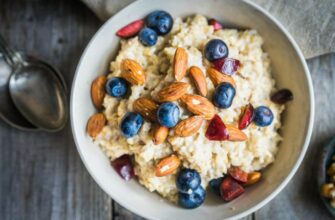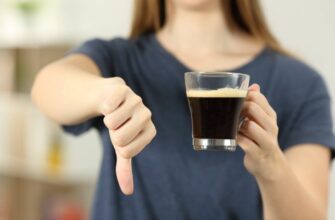Beer and wine are the two most popular alcoholic beverages — and for good reason. Aside from their unique flavor profiles, these fermented favorites might benefit your health when consumed in moderation. These perks aren’t just folklore, either. Modern science proves that indulging in a bit of wine or beer can be beneficial, and knowledge of their chemistry is helping to improve healthcare.Is there is a healthier choice between the two, and how can you maximize these benefits?
One Serving: The Basics
One five-ounce serving of red wine is typically 150 calories and has no fat, fiber, protein. White wine is slightly lower in calories, but sweeter versions like Moscato and Riesling contain higher sugar levels and no antioxidants.Calories in a serving of beer depend on what type of beer you’re drinking, though it will typically have no fat, fiber, or sugar, and some carbs. Experts agree that most calories come from the questionable eating habits associated with intoxication, including overindulging in the fatty, salty foods most often offered as appies next to your drinks.
The Telltale Shopping Basket
A 2006 study of grocery shoppers in Denmark found that people who bought wine also tended to make healthier food choices. Wine drinkers purchased more fresh produce, olives, lean meats, and low-fat dairy on average, while beer drinkers favored ready-cooked meals, processed meats, and sugary soft drinks. This trend suggests that wine enthusiasts may be more health-minded or that it may be time for some beer drinkers to evaluate their diets.
More or Less Drunk
Does wine make you drunker than beer, and can it trigger specific mood swings? No evidence proves that either beer or wine makes you drunker. How drunk you get depends on how you drink: how much and how quickly. Likewise, neither will have a specific effect on mood. A 2011 study found that participants’ level of aggression depended on their personal behavioral tendencies — not alcohol type.
To Cheat a Hangover
“Beer before wine, and you’ll feel fine” is just one of many helpful phrases meant to evade painful hangovers. Unfortunately, a 2019 study by the University of Cambridge suggests that neither order gives you the advantage of a milder morning after. Too much beer or wine — enjoyed in any order — is bound to result in dehydration, nausea, and headaches. The only effective hangover prevention is to enjoy your drinks in moderation and stay hydrated while indulging.
Matters of the Heart
Beer and wine contain antioxidants, compounds that prevent unstable molecules called free radicals from damaging our cell membranes and DNA. Antioxidants like melanoidins and flavinoids are only found in hops and form in beer during the brewing process. These compounds possess anti-inflammatory, antimicrobial, and antihypertensive properties. Antioxidants in red wine may help increase levels of high-density lipoprotein, or “good” cholesterol, necessary in preventing coronary artery disease.
Polyphenols for the Win
Polyphenols are one type of antioxidant that has researchers excited. These defense chemicals occur naturally in fruits and vegetables, including the skin of wine grapes, and help prevent plaque formation in the arteries. Red wine is also associated with relaxation of blood vessel walls and lower levels of low-density lipoprotein, or “bad” cholesterol. Beer contains similar compounds with unique benefits, but red wine wins the polyphenol competition.
From Hops to Humulones
Beer gets its characteristically bitter taste from hops, the dried, mature flowers of the hop plant. The ingredient also creates humulones, substances that, in moderation, are linked to positive effects on diabetes, inflammation, and some cancers. Scientists are still studying the relationship between humulones and health, with the aim of brewing more enriched beers and developing therapies for these conditions. To enjoy the benefits of humulones today, opt for hoppier, darker beers.
Resveratrol: the Real Hero
Studies link red wine to a variety of heart-healthy polyphenols, but resveratrol is particularly interesting to scientists. Some consider resveratrol the most valuable wine compound because of its links to reduced insulin resistance and cancer protection. The compound’s anti-inflammatory effects also contribute to slower age-related cognitive decline and blood clotting. White wine contains some levels of the particular polyphenol, but for the highest dose, reach for a glass of red.
Go With Your Gut
An imbalance of good and bad gut microbes can cause many health issues, from a weakened immune system to weight gain. The goal is to cultivate a diversity of good bacteria in your gut, and a 2019 study showed that red wine could improve microbe diversity thanks to the abundance of polyphenols.A similar study found that while beer drinkers likewise experienced a positive increase in beneficial gut bacteria, the best results came from drinking non-alcoholic beer. Participants who drank alcohol-free beer experienced increases in functional cells and decreases in blood glucose levels, while alcoholic beer drinkers experienced the opposite.
Maybe It’s the Alcohol
Whether you prefer beer or wine, some scientists believe that any alcoholic beverage will do. Some research suggests that it’s alcohol, not the type of beverage, that produces health benefits. When in doubt, drink what you prefer, whether it’s an oaky pinot noir or a hoppy IPA, and don’t be afraid to try something new.If you don’t drink alcohol, however, it certainly isn’t necessary to start for your health. You’ll find enough antioxidants and polyphenols in a balanced diet.

 Home
Home Health
Health Diet & Nutrition
Diet & Nutrition Living Well
Living Well More
More




















